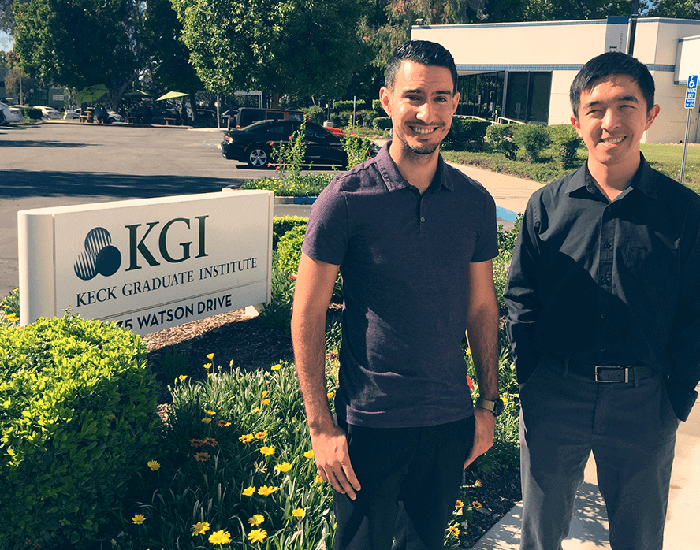The 10 Keck Graduate Institute (KGI) students who arrived for their health systems pharmacy practice experience at Anaheim Regional Medical Center last spring were quickly put to the test—one that they passed with flying colors.
It all began when Marty Torres, the medical center’s pharmacy director and preceptor for the experiential course, made a request to KGI School of Pharmacy Dean Kathy Webster. He saw a need for medication reconciliation in the emergency department and asked whether the students could meet their program requirements by contributing there instead of by shadowing pharmacists and pharmacy technicians. Webster agreed to the modification.
“This was a unique opportunity for our students to have significant interaction with patients and other healthcare providers,” says Webster. “It also allowed them to apply what they were learning on campus in a meaningful way and to test their competency sooner than most pharmacy students.”
Each KGI student came to the medical center for a three-week period. They arrived two at a time, with five sets of students completing the atypical health system pharmacy practice between May and August. Their primary task was to help the hospital create a medication list for each patient entering the emergency department, including the drug name, dose and frequency.
“As we age, we are more likely to be on a variety of medications. When patients present at the emergency room, we need to create a medication list that’s as accurate as possible. This is time consuming and not a priority for nurses and physicians because they’re focused on determining why the person is in the emergency department and making a diagnosis,” explains Torres. “I thought the students could function in this setting because KGI already has them interact with patients and provides them with competency in the top 300 drugs.”
Within their first week at the medical center, the pharmacy students were working alongside doctors and nurses in an environment with 100 or more daily patients, regularly arriving ambulances, loud noise and no desk or computer available for their individual use. They also faced an additional test—the one Torres gave them on the drugs they had studied at KGI.
“I tested them on the top 300 medications and made it clear they had to be top notch in their competency. I think they were a little surprised by the expectations, but they did well,” says Torres.
